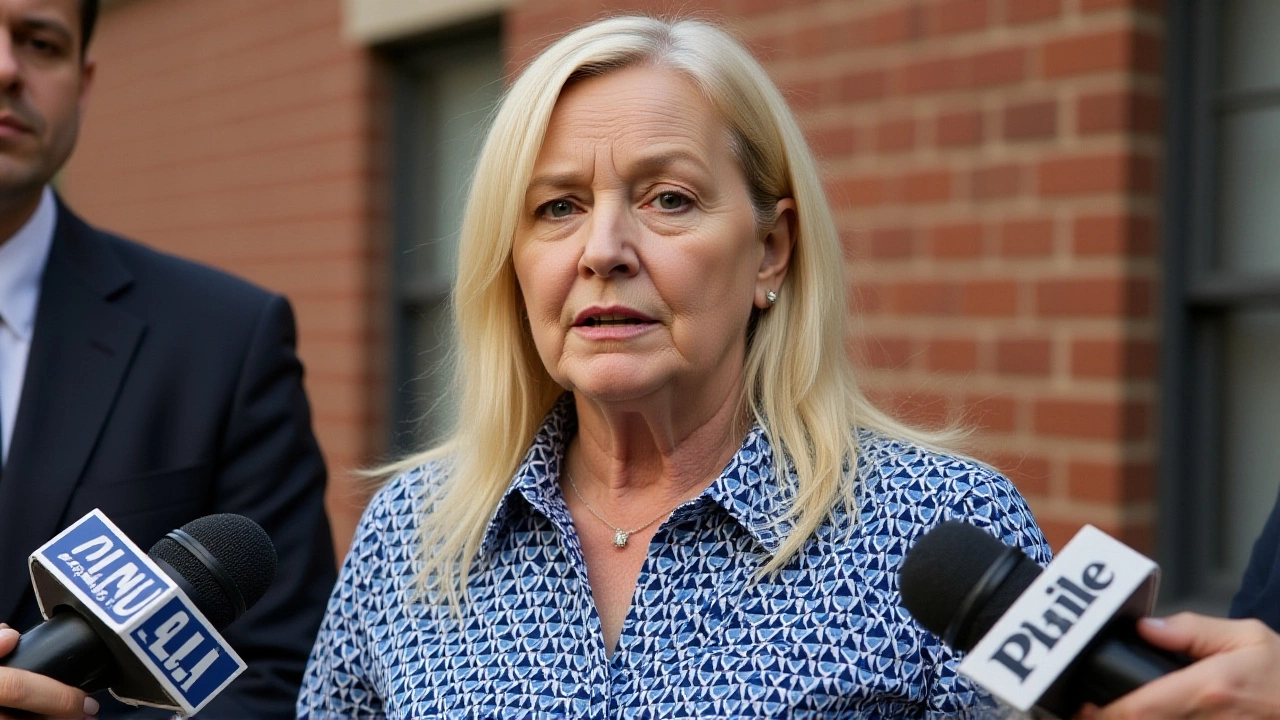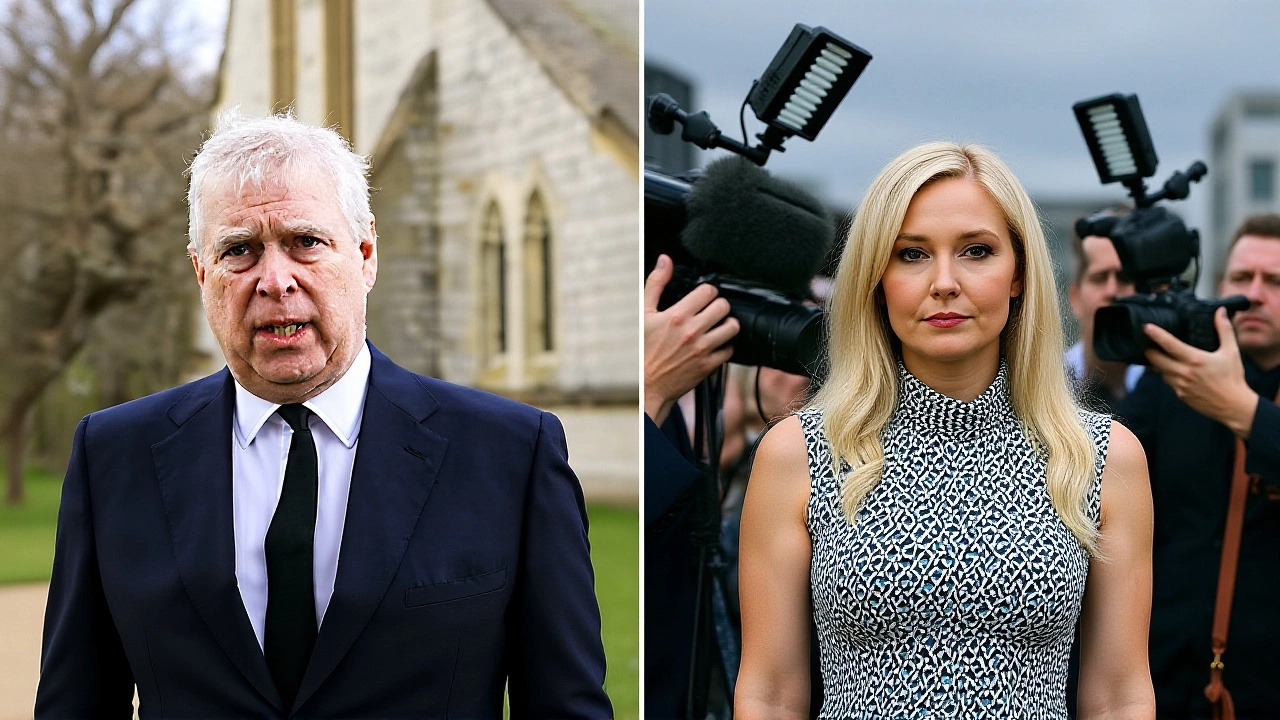
When Virginia Roberts Giuffre, the late accuser whose testimony has haunted the Jeffrey Epstein case, died by suicide earlier this year, her brother stepped into the spotlight. On September 24, 2025, Sky Roberts stood outside the office of U.S. Rep. Jeff Crank in Colorado Springs, demanding that Congress force the full release of the sealed Epstein files. The push comes hot on the heels of a July 23 ruling by the U.S. Court of Appeals for the Second Circuit, which threw out parts of a lower‑court order that kept key documents hidden.
Background of the Giuffre Family Campaign
Virginia’s allegations against financier Jeffrey Epstein and his former associate Ghislaine Maxwell have become a rallying point for dozens of survivors. After filing a defamation suit against Maxwell in 2015, Giuffre’s case generated a trove of discovery material that was largely sealed by Judge Loretta A. Preska. While many documents were unsealed over the years, the family has long argued that the most damning evidence—especially Virginia’s own deposition transcript from Florida—remains locked away.
In an August 1, 2025 interview with Kaitlan Collins of CNN, Sky and his wife Amanda Roberts said their sister‑in‑law had "unequivocally" expressed the wish to see every file made public before she died. "She wanted the world to know what they've done to her and so many other survivors," Amanda told Collins, echoing a sentiment that now fuels their political lobbying.
Legal Landscape After the Second Circuit Decision
The July 23 opinion—cited as Giuffre v. Maxwell, No. 24‑182 (2d Cir. 2025)—found that the district court erred by treating pending motions as non‑judicial and by granting only a “barely cognizable” presumption of access to the Florida deposition. In plain language, the appellate judges said the lower court jumped the gun, refusing to treat those filings as public court records.
- It vacated the district court’s orders that kept the undecided motions sealed.
- It sent the Florida deposition transcript back for review under a stricter standard.
- All other unsealing decisions—most of which had already been made public—remained in place.
Legal analysts, such as Julie Brown of the Miami Herald, have described the ruling as a “potential turning point” because it opens the door for extensive discovery that could link powerful figures to Epstein’s trafficking network.
Political Push in Washington
The timing of the Colorado Springs press conference could not have been more strategic. Just a day earlier, Democrats captured a special‑election seat in Arizona, nudging the caucus closer to the 218‑vote threshold needed to force a floor vote on unsealing the remaining Epstein documents.
During the rally, Sky Roberts raised a photograph of his sister and declared, “If you think we’re going away, you are wrong.” He directly appealed to Rep. Jeff Crank, urging the congressman to co‑sponsor a bipartisan resolution that would compel the Department of Justice to release the files to the public.
Senators on the Judiciary Committee have already hinted at drafting such legislation, citing the Second Circuit’s decision as a legal foothold. If passed, the measure would bypass the typical court‑by‑court approach and make the documents accessible via a Congressional subpoena.

Reactions from Survivors and Experts
Survivor advocates across the country greeted the news with cautious optimism. The National Human Trafficking Hotline, which was mentioned in a local Colorado politics column, reminded callers that help is just a phone call away at 1‑888‑373‑7888.
Legal scholar Mark S. Zaid warned that even with a congressional vote, “the battle over what counts as a judicial document will likely return to the courts.” Still, he added, “the public pressure generated by Giuffre’s family is an undeniable force that could reshape how we handle high‑profile trafficking cases.”
Meanwhile, former U.S. Attorney Preet Bharara called the push “a testament to how survivors are reclaiming agency,” and said any release of the files would “offer unprecedented transparency for a case that has haunted the nation for over a decade.”
What Comes Next
The Second Circuit has sent the specific issues back to the Southern District of New York. Judge Preska is expected to issue a new order within the next 60 days, which could either grant access to the Florida deposition or set new parameters for what qualifies as a judicial document.
In Congress, the window for a floor vote widens as Democrats tally votes after the Arizona special election. If they secure the needed majority, a resolution could pass as early as November, when the House is back in session.
For the Giuffre family, the fight is personal and public. As Sky Roberts put it, “We are carrying Virginia’s torch. The truth belongs to every survivor, and we won’t stop until it shines.”
Frequently Asked Questions
How does the court ruling affect the release of Epstein documents?
The July 23 Second Circuit decision vacated the lower‑court order that kept several motions and Virginia Giuffre’s Florida deposition sealed, sending those issues back for review. While it does not instantly unseal every file, it creates a legal pathway for the documents to be reconsidered under a stricter judicial‑record standard.
What role does Rep. Jeff Crank play in the family’s campaign?
Rep. Crank, the congressman for Colorado’s 5th district, was the target of the September 24 press conference. The Giuffre family urged him to sponsor a bipartisan resolution that would compel the Justice Department to release the sealed Epstein files, leveraging his position on the House Judiciary Committee.
Why does the family say Virginia Giuffre wanted the files public?
During an August 1 CNN interview, Sky and Amanda Roberts relayed that Virginia said she wanted “the world to know what they’ve done to her and so many other survivors.” They cited her last recorded conversations and personal notes indicating she believed full transparency would help prevent future trafficking.
What are the political implications of the upcoming House vote?
If Democrats secure a majority after the Arizona special election, they could force a floor vote on a resolution demanding the unsealing of the remaining Epstein documents. Passage would set a precedent for congressional intervention in high‑profile legal disclosures, potentially accelerating the release of evidence that implicates powerful individuals.
How can survivors get help now?
The National Human Trafficking Hotline operates 24/7 at 1‑888‑373‑7888, and texts can be sent to 233733. The hotline provides crisis counseling, connections to local services, and safety planning for anyone impacted by trafficking.


